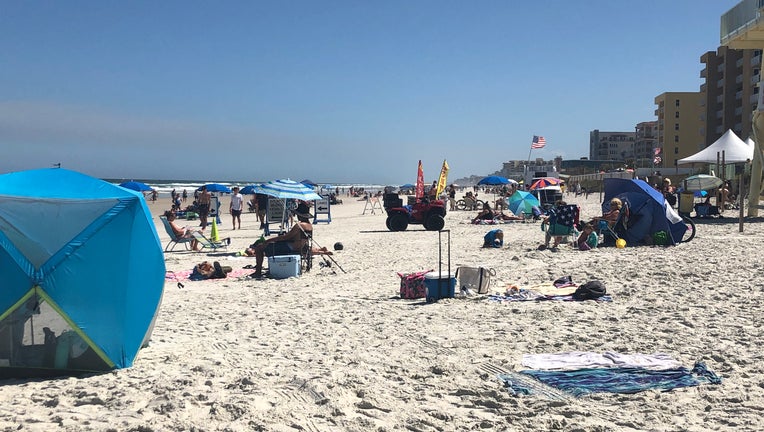DeSantis fights depositions in beach closure case

TALLAHASSEE, Fla. - Gov. Ron DeSantis is fighting an attempt to require him to appear for a deposition in a lawsuit that seeks to force statewide beach closures because of the novel coronavirus.
Attorneys for DeSantis filed a seven-page court document Thursday arguing that the governor should be shielded from having to testify in a deposition sought by Santa Rosa Beach lawyer Daniel Uhlfelder, who filed the beach-closure lawsuit. Uhlfelder filed a notice earlier in the week scheduling the DeSantis deposition on April 22 in Tallahassee.
In the document Thursday, the governor’s attorneys pointed to a “well-established rule in Florida … that absent extraordinary circumstances” state agency heads should not be required to testify in depositions or trials.
“It would be detrimental to the efficient operation of the state government as a whole to allow Governor DeSantis to be deposed or required to testify at an evidentiary hearing in virtually every case challenging decisions made by the governor,’ his attorneys wrote. “This is especially true at this moment, while Governor DeSantis is in the midst of leading the state of Florida through COVID-19.”
Leon County Circuit Judge Kevin Carroll is scheduled to consider the deposition issue during a hearing Tuesday. Carroll also will weigh a DeSantis request to dismiss the case and a Uhlfelder request for an emergency injunction requiring statewide beach closures.
Beach closures have been a closely watched issue during the past month as Florida has sought to stem the spread of the coronavirus, which causes the deadly respiratory disease COVID-19. The issue drew attention, in part, because of images of groups of college students gathering on beaches during spring break.
Many local governments have closed beaches, but DeSantis has resisted a statewide beach-closure order. That prompted Uhlfelder to file the lawsuit, arguing that the “public policy goal of blunting the spread of one of the most far-reaching and deadly viral outbreaks in human history is served by closing Florida’s beaches.”
“DeSantis is obligated by the Florida statutes, the Florida Constitution and his oath of office to take the basic step of issuing a statewide beach closure order to assist in preventing the spread of COVID-19,” the lawsuit said. “Mr. DeSantis’ failure to issue a statewide beach closure order is an abject failure of his obligation to faithfully execute the Florida statutes, observe the Florida Constitution and thereby uphold his oath of office.”
But in seeking to dismiss the case, DeSantis’ attorneys disputed such arguments and pointed, in part, to the governor’s legal discretion in deciding how to use his emergency powers.
“Lest there be any doubt: Plaintiff has not pointed to a single constitutional or statutory provision that would require Governor DeSantis to issue a statewide mandatory beach-closure order or a statewide recommended safer-at-home order,” the motion to dismiss the case said. “And Governor DeSantis is unaware of any legal authority that would require him to do so.”
In fighting the deposition, DeSantis’ attorneys also wrote that much of the information Uhlfelder seeks is already available from such things as news conferences and executive orders the governor has issued.
“Plaintiff cannot make the requisite showing that the information sought is ‘uniquely’ available from Governor DeSantis,” the document said. “First, Governor DeSantis has done daily, sometimes multiple per day, press conferences on a variety of issues and actions taken during the response to COVID-19. Many press conferences included detailed statements and questions from members of the media regarding the choice to not take actions specifically requested by plaintiff.”

